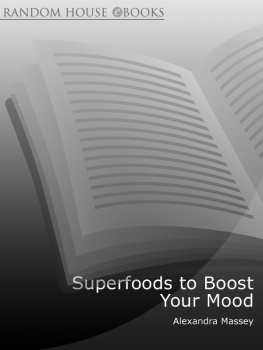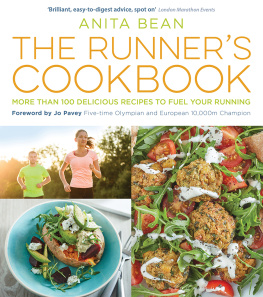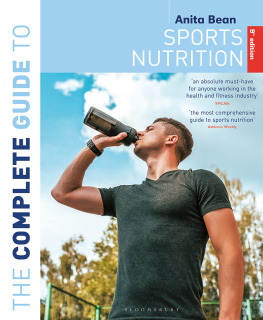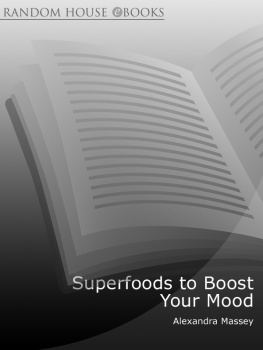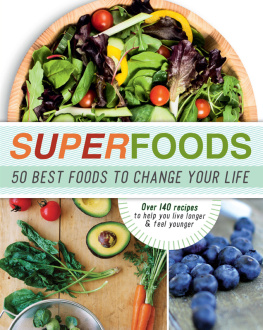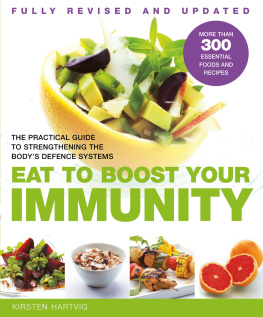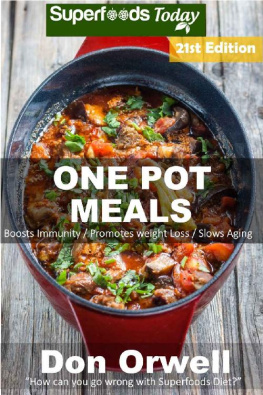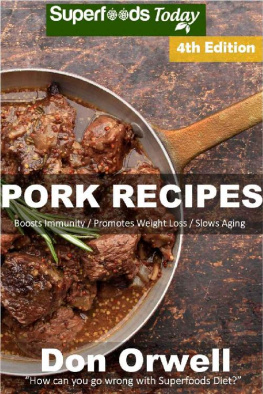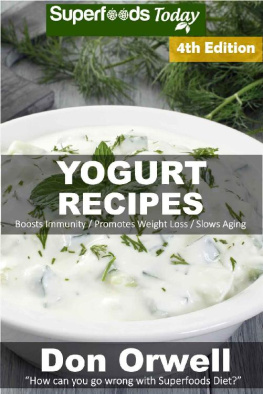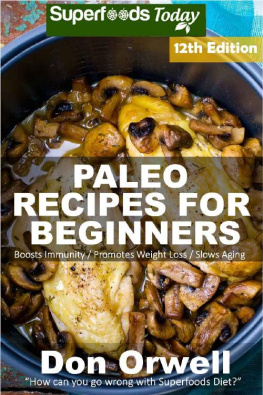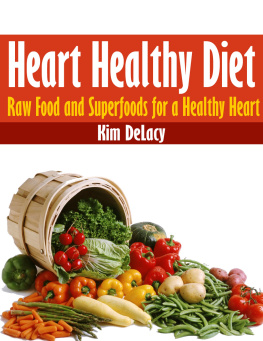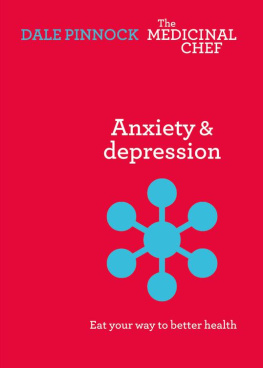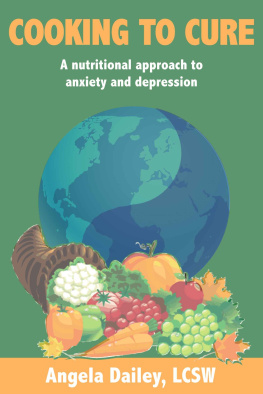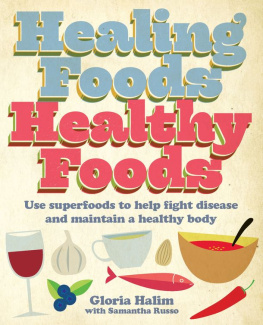Contents
HOW DO YOU FEEL?
EATING TO BEAT DEPRESSION
EMOTIONAL EATING
BAD-FOOD FALLOUT
SUPERFOODS TO FIGHT DEPRESSION, FATIGUE AND STRESS
THE 7-DAY FOOD PLANS
About the Book
In recent years scientific studies have identified that nutrients in certain foods can have a dramatic effect in fighting low-level depression and the mental sluggishness caused by unhealthy, highly processed foods.
Depression affects most of us at some time in our lives but medication can sometimes be counterproductive and counselling services are often heavily subscribed. If we need professional help for depression we need it straight away, yet this might not always be possible.
Faced with this dilemma herself, Alexandra Massey, best-selling author of Beat Depression and Reclaim Your Life, has developed SuperFoods, a guide to fighting fatigue, anxiety, stress and depression through food.
SuperFoods contains:
* Dietary tips to combat fatigue, anxiety, stress and depression
* Three seven-day eating plans for depression, stress and chronic fatigue
* Ten superfoods that fight depression
* Ten common symptoms of bad food fallout
* Q&A sections to identify lifestyle/eating habits
* Testimonials from those who have followed the meal plans.
Written in association with award-winning nutritionaist Anita Bean, SuperFoods is an invaluable, jargon-free guide. These delicious alternatives to high-fat, salty and sugary processed meals will help you fight depression by changing what you put on your plate.
Introduction
I have always had a difficult relationship with food. As far back as I can remember I have eaten food based on how Im feeling. From the age of five or six I used to sneak into the cupboard and pinch some of my dads chocolate biscuits if I felt bad. From the age of nine onwards I must have been aware of how body shape mattered because I would put myself on a diet and tell everyone about it; maybe I wanted to be like an adult or perhaps I needed some attention. Whatever the case, I had a push-pull affiliation with food that became more intense the older I got. It was only when I took stock of what was happening to me and began to recognise the improvements that could be made to my sense of wellbeing from eating more healthily that I could change my habits. I began to notice that a day of healthy eating would mean I had much more energy, uplifting my overall outlook; conversely, a day of junk food with sugary snacks and high-fat meals meant I was more likely to wake up the next day feeling tired, depressed and fed up.
We all use food and drink as a way of changing our mood. Look at the way we use coffee to get us going in the morning, a bar of chocolate as a treat, or a glass of champagne to help us celebrate. Using food to change the way we feel is embedded in our eating culture. Top Sant magazine found that 61 per cent of us would rather have a good meal than a night of passion. Food is the way we can comfort ourselves, offer ourselves an indulgence, or pamper someone with a sumptuous feast.
However, the foods we eat to cheer ourselves up are often quick fixes that come with a downside. Foods such as cakes and biscuits deposit large amounts of sugar into the bloodstream. This provides a quick energy boost but then the fall in blood sugar sometime afterwards can be accompanied by tiredness, a low mood and even dizziness and shaking. Although our bodies make us aware of such symptoms, we rarely associate them with low blood-sugar levels or with what we ate earlier. We tend instead to put these feelings down to fatigue or stress.
Nevertheless, there is an increasing amount of research pointing towards food as having a powerful effect on the way we feel, both physically and emotionally. As this is a relatively new field, there arent a lot of definites, but there is a certainty that if you eat the right food at the right time your chemistry will be balanced, which will make you feel great; eat the wrong food at the wrong time and this may cause insomnia, stress, exacerbated PMT, general fatigue, and leave your immune system vulnerable to attack from cold and flu viruses. A recent survey, carried out by the Food & Mood project run by MIND, of 200 people found that 88 per cent of them said changing their diet for the better significantly improved their mood.
Of course there are many other factors that can affect our disposition, such as our financial security, home life or relationships at work, but the exciting thing about the food/mood link is that it opens up a whole new world of knowledge at our fingertips. Rather than wondering why we feel so tired, considering a visit to the doctor or berating ourselves for not feeling better, we actually have some of the answers in our own kitchen. The fact that we can plan our meals in accordance with the way we would like to feel is liberating. Not only that, but the time needed to feel the difference in our physical and emotional wellbeing can be as little as a matter of hours.
This book will look at ways of eating that can dramatically enhance our emotional wellbeing together with two straightforward concepts to streamline good eating habits: the Five a Day rule and Three Meals a Day. It also offers food for thought by looking at ten areas of modern behaviour around eating and offers top tips that can be easily assimilated into a busy life.
We also take a look at Emotional Eating, of which there has been a huge increase in recent years. Emotional eating is the practice of stifling negative feelings through eating comforting food. According to new research, a quarter of us eat when we are stressed and at least 40 per cent of us eat when we are bored. This can set up a vicious cycle. For example, if we want to ignore an emotion that is nagging at us, and we comfort ourselves by eating sugary or fatty foods, we can end up feeling physically and emotionally worse than we did originally. The good news is that emotional eaters do not actually consume more than non-emotional eaters when in stressful situations; its just that they generally indulge in foods that are higher in fat and calories. In this book, we look at the key to re-educating our taste buds, learning to equate emotional wellbeing with new tastes and flavours. This is not as difficult as it may sound. Contrary to popular belief, foods that produce good moods can also be delicious.
We dont have to eat foods we dont enjoy in order to feel better. A steady introduction of good-mood foods into the kitchen can change our bodies cravings quite quickly even to the point where we will begin to hanker after the stuff that will make us feel better. We will begin to feel less enamoured by the sugary, salty and high-fat foods. When introduced to delicious good-mood foods that are effortless to prepare, you might wonder why you havent tried them before. Sometimes its as simple as trying one new recipe to set you off onto a new course of action. The recipes in this book offer a range of foods and flavours to tantalise the palate, while at the same time offering a nutritional base for feeling great.
We will look at the top five areas of the modern diet to which the experts draw our attention because they have the most powerfully negative influence on the way we look and feel. It is often perplexing trying to find the right solution to changing our eating habits due to information overload about what we should and shouldnt be eating. Super Foods will also explain the top ten bad-food fallouts by giving some straightforward facts and incorporating simple recommendations for improvements that will begin to take effect almost immediately.
Next page
